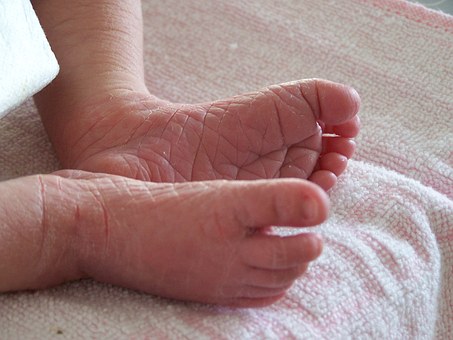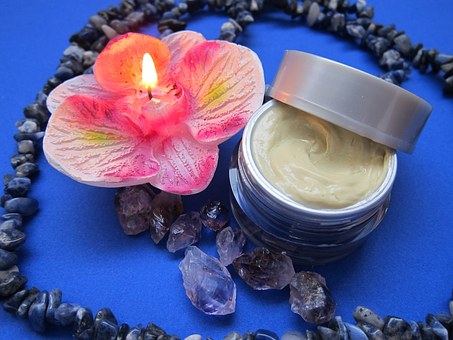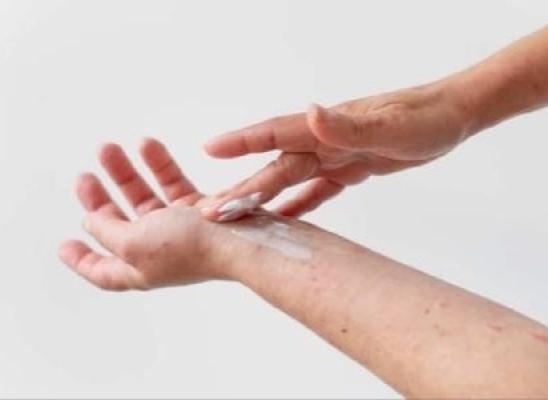Eczema and dermatillomania
Online test
Find out the severity of your symptoms with this free online test
 May compulsive skin pickers report also having a number of other chronic skin conditions such as psoriasis or eczema. It is even thought to be traced back to the onset of skin picking disorder or excoriation disorder for some, while for others the reverse relationship is true, whereby compulsive skin picking worsened the effects of eczema.
May compulsive skin pickers report also having a number of other chronic skin conditions such as psoriasis or eczema. It is even thought to be traced back to the onset of skin picking disorder or excoriation disorder for some, while for others the reverse relationship is true, whereby compulsive skin picking worsened the effects of eczema.
I am starting to think that it’s quite likely that the eczema I had on my face for all of my 20s was made worse by me and my habit of picking” – Ellican, skinpick.com forum
However onset is not the same as cause and this is an important distinction to make. Eczema does not cause excoriation disorder, and in severe cases, excessive scratching of the skin is solely attributed to the eczema as opposed to being indicative of a diagnosis of excoriation disorder. In fact one of the criteria for the diagnosis of excoriation disorder as outlined by the Diagnostic and Statistical Manual (DSM5) is that skin picking is not attributable to another medical skin condition such as scabies, eczema, psoriasis, etc. That does not mean however that the two conditions do not occur comorbidly.
What is Eczema?
Eczema is a common skin condition that affects each individual with the condition differently. It is a dry skin condition also known as dermatitis and affects people of all ages. Our skin is our protective barrier to the environment, helping defend our bodies from infection. The effectiveness of this barrier depends on our skin’s ability to retain moisture, thereby preventing bactieria from penetrating the layers of the skin. When you have eczema your skin is not retaining this moisture, causing your skin to break down more easily, making your skin dry, inflamed and itchy, and in more severe cases there may even be crusting and bleeding. The causes of eczema are not fully understood, partly because the triggers appear to be different for different people. Whatever the trigger, it appears that eczema is an overactive immune system response to a perceived irritant. Whatever the cause and regardless of the severity, eczema affects the individual’s quality of life and like many other chronic conditions, can have a negative psychological impact on the sufferer. Here are some findings from the American Academy of Dermatology and other skin groups as listed in Psychology Today:
• Major depression is one of the main results of chronic skin disorders.
• Other psychosocial side effects of skin conditions are social withdrawal, anger, frustration, and lack of confidence.
• Adults with acne face higher rates of unemployment than the general population.
• Kids with skin disorders suffer, too. Two out of five of these children have some psychosocial impairment.
The Urge to Scratch
Eczema flare-ups causes the skin to itch. This itch can be unbearable, yet the more you scratch the more it itches and the  worse your skin becomes. Although dermatillomania is not always related to the condition of the skin and is not confined to scratching, skin pick sufferers will be able to relate to this irresistible urge to scratch the skin experienced in eczema patients. Another similarity between eczema and dermatillomania is the known influence of stress and diet on the severity of symptoms. Experts have known for years that stress can make eczema worse. In fact, a branch of medicine, called psychodermatology, examines how the mind affects the skin. Similarly in dermatillomania, many people report to have increased urges to pick during times of increased stress. Similarly changes in diet has been reported to lead to reduced symtpoms of eczema as well as a reduction in picking for some. In addition if you happen to have both excoriation disorder and dermatillomania, the physical itch associated with eczema will make it even more challenging to stop picking no matter how effective psychological therapies may be.
worse your skin becomes. Although dermatillomania is not always related to the condition of the skin and is not confined to scratching, skin pick sufferers will be able to relate to this irresistible urge to scratch the skin experienced in eczema patients. Another similarity between eczema and dermatillomania is the known influence of stress and diet on the severity of symptoms. Experts have known for years that stress can make eczema worse. In fact, a branch of medicine, called psychodermatology, examines how the mind affects the skin. Similarly in dermatillomania, many people report to have increased urges to pick during times of increased stress. Similarly changes in diet has been reported to lead to reduced symtpoms of eczema as well as a reduction in picking for some. In addition if you happen to have both excoriation disorder and dermatillomania, the physical itch associated with eczema will make it even more challenging to stop picking no matter how effective psychological therapies may be.
Treatments
As with any chronic condition, the key to managing or treating it is to identify the triggers and aggravators. For people with eczema this may be diet, allergies or even stress. Incidentally these same things can also be aggravators of skin picking. Studies have found that managing the effects of emotional stress in your life might be one of the best ways to help control your eczema. Similarly in cognitive behavioral therapy for skin picking, clients are empowered with the cognitive tools to address stressful thoughts and emotions in healthy ways, rather than finding relief in picking.
Medication is another method of treating eczema. One of the key differences between eczema and excoriation disorder is that when eczema skin is healed there is no urge to scratch, whereas skin pickers experience the urge regardless of the condition of the skin, even if skin imperfections exacerbate these urges. Eczema medications work in two ways, it relieves symptoms and helps the skin heal.
Topical corticosteroids. Creams and ointments with hydrocortisone steroids quickly help relieve itching and reduce inflammation. They come in different strengths from mild over-the-counter (OTC) treatments to stronger prescription medicines.
Barrier repair moisturizers. These eczema treatments are available OTC and by prescription. They help lock water into skin, repair damaged skin, and reduce dryness, redness, and itching
 While using these creams don’t treat excoriation disorder, it can have a healing effect on the scars that result from excessive picking. One of the biggest consequences of excoriation disorder is the immense shame that comes with both the behavior and the resultant appearance of the skin. Many skin pickers report that they become socially isolated and no longer participate in enjoyable activities like swimming in order to avoid others seeing the scars on their body. According to dermatologist Dr. Sasi Attili, if the scar is swollen or red, a steroid creams can have a calming effect on the skin through absorption by skin cells where it reduces inflammation. In his guest blog on the Stop skin Picking Coach website he lists a host of other dermatological treatments for scar tissue. The use of moisturizers has also been used successfully by some skin pickers as a stimulus control in that thick application makes the skin smooth and slippery and therefore harder to pick with the fingers, particularly in the nails are kept short. Either way, it is always a good idea to talk to your health profession about your skin picking even if they do not know much about it. A holistic approach that considers you as a whole person rather than a sum of parts will go a long way in helping you find the most appropriate treatment.
While using these creams don’t treat excoriation disorder, it can have a healing effect on the scars that result from excessive picking. One of the biggest consequences of excoriation disorder is the immense shame that comes with both the behavior and the resultant appearance of the skin. Many skin pickers report that they become socially isolated and no longer participate in enjoyable activities like swimming in order to avoid others seeing the scars on their body. According to dermatologist Dr. Sasi Attili, if the scar is swollen or red, a steroid creams can have a calming effect on the skin through absorption by skin cells where it reduces inflammation. In his guest blog on the Stop skin Picking Coach website he lists a host of other dermatological treatments for scar tissue. The use of moisturizers has also been used successfully by some skin pickers as a stimulus control in that thick application makes the skin smooth and slippery and therefore harder to pick with the fingers, particularly in the nails are kept short. Either way, it is always a good idea to talk to your health profession about your skin picking even if they do not know much about it. A holistic approach that considers you as a whole person rather than a sum of parts will go a long way in helping you find the most appropriate treatment.
Online test
Find out the severity of your symptoms with this free online test
Start your journey with SkinPick
Take control of your life and find freedom from skin picking through professional therapy and evidence-based behavioral techniques.
Start Now



